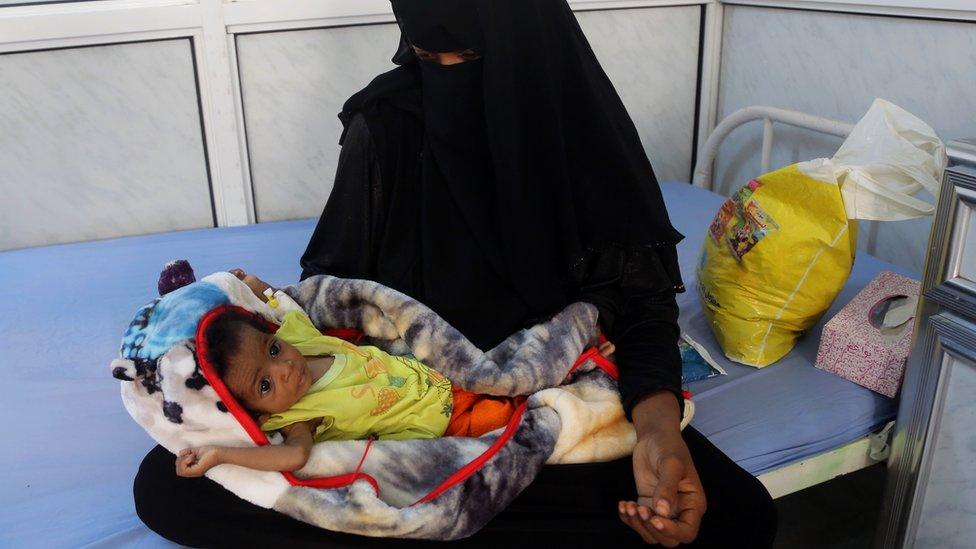Yemen conflict: UN experts detail possible war crimes by all parties
- Published
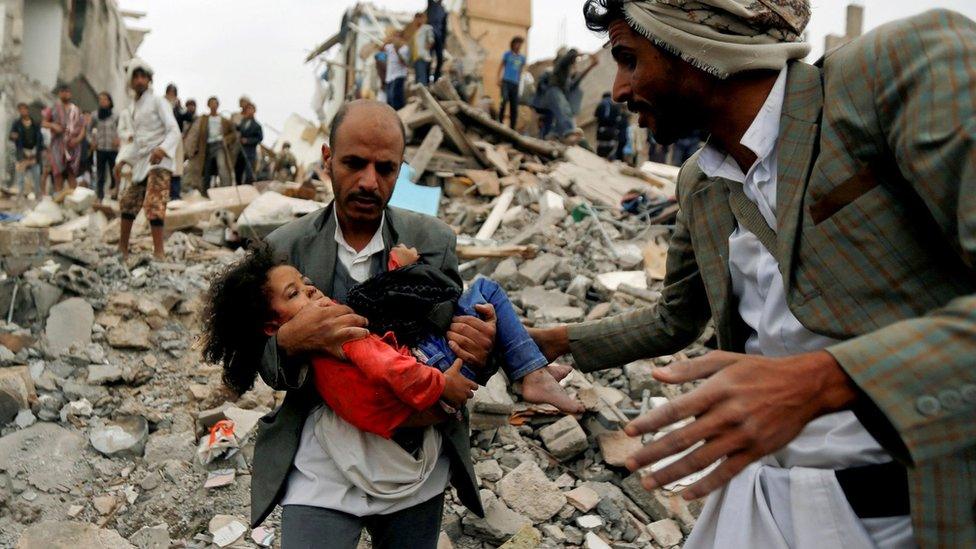
Coalition air strikes have caused most direct civilian casualties
UN human rights experts believe war crimes may have been committed by all parties to the conflict in Yemen.
In their first such report, external, they allege Yemeni government forces, the Saudi-led coalition backing them, and the rebel Houthi movement have made little effort to minimise civilian casualties.
They point to attacks on residential areas in which thousands have died.
The warring parties are also accused of arbitrary detentions, torture, enforced disappearances and recruiting children.
The experts will present their report to the UN Human Rights Council next month.
Why is there a war in Yemen?
Yemen has been devastated by a conflict that escalated in early 2015, when the Houthis seized control of much of the west of the country and forced President Abdrabbuh Mansour Hadi to flee abroad.
Alarmed by the rise of a group they saw as an Iranian proxy, the UAE, Saudi Arabia and seven other Arab states intervened in an attempt to restore the government. They have received logistical and intelligence support from the US, UK and France.
The conflict in Yemen has been raging for years - but what is it all about?
At least 6,660 civilians have been killed and 10,563 injured in the fighting, according to the United Nations. Thousands more civilians have died from preventable causes, including malnutrition, disease and poor health.
The fighting and a partial blockade by the coalition has also left 22 million people in need of humanitarian aid, created the world's largest food security emergency, and led to a cholera outbreak that is thought to have affected 1.1 million people.
What are the allegations in the report?
The so-called Group of Experts note that coalition air strikes have caused most direct civilian casualties, external, and that they have hit residential areas, markets, funerals, weddings, detention facilities, civilian boats and medical facilities.
The report says they "have reasonable grounds to believe that individuals in the government of Yemen and the coalition may have conducted attacks in violation of the principles of distinction, proportionality and precaution that may amount to war crimes".
Aftermath of an attack that shocked the world
They add that the naval and air restrictions imposed by the coalition on rebel-held areas to halt alleged weapons smuggling may also constitute a violation of the proportionality rule of international humanitarian law, while the effective closure of Sanaa airport may violate the principle of protection for the sick and wounded.
The experts also expressed concern at the situation in the southern city of Taiz, where the Houthis have been besieging a government-held area for three years.
The report says civilians, including women and children, have been hit by shelling and snipers from the Houthis and other parties while in their homes, fetching water at local wells, or on their way to purchase food or seek medical attention.
The Houthis are accused of indiscriminately using "weapons with wide area effect" in Taiz and other urban settings, which would constitute a war crime.
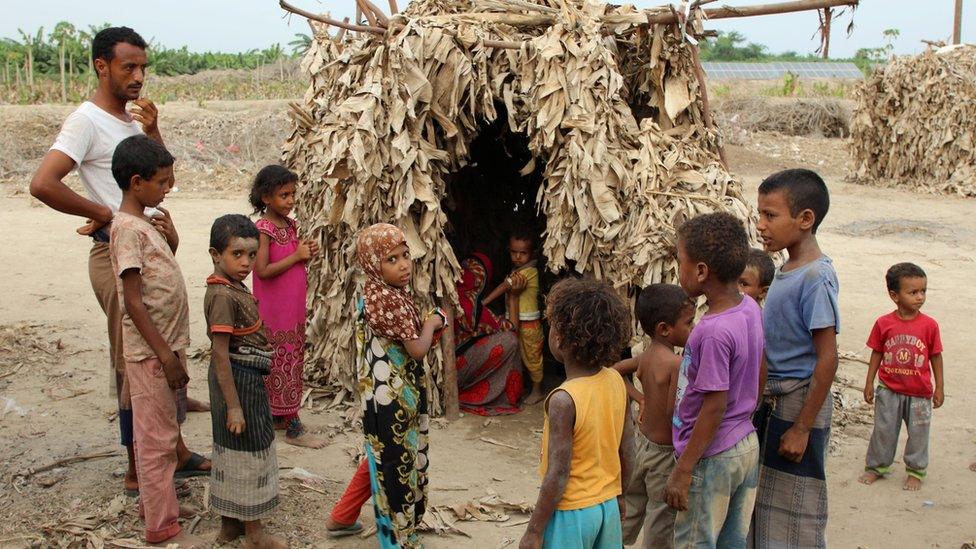
Three million people have been displaced by the conflict
The experts also found evidence of widespread arbitrary detention throughout the country by all parties, and ill-treatment and torture of some facilities.
Victims and witnesses also described to the experts "persistent and pervasive aggressive behaviour", including sexual violence perpetrated by a pro-government force known as the Security Belt and UAE personnel, according to the report.
The experts say they also received information indicating all parties had conscripted or enlisted children - some as young as eight years old - and used them to participate actively in hostilities.
What do the warring parties say?
Houthi officials did not immediately respond to the UN report, but a spokesperson for the coalition said it had referred the document to its legal team.
"The coalition will take an appropriate position on this matter and make an announcement about it once the legal team submits its observations," the spokesperson added.
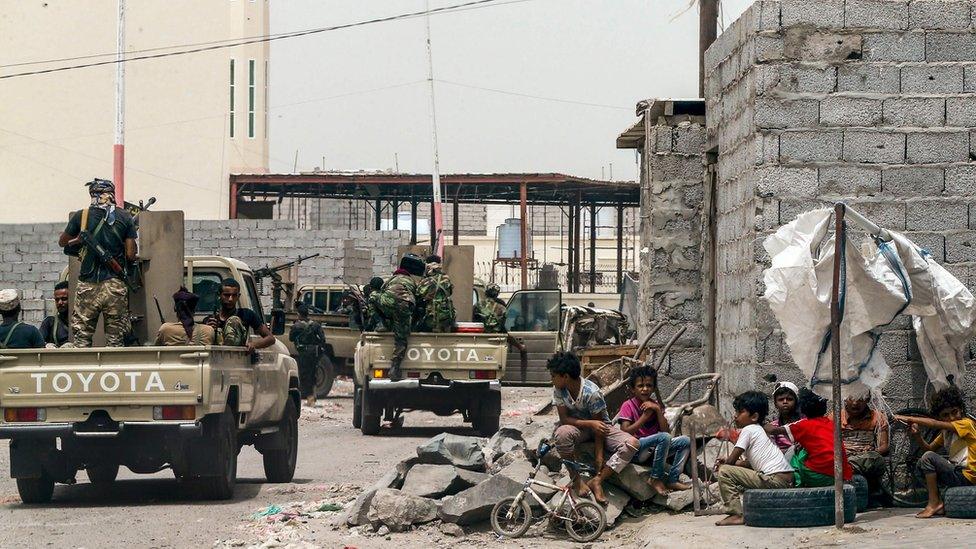
The UN's special envoy has warned that if the conflict is left unresolved, Yemen could collapse
On Monday, the coalition accused the UN team in Yemen of bias after it called for expressing condolences to the families of more than 30 civilians, including 22 children, reportedly killed in two air strikes, external last week.
What happens next?
The experts say they have identified, where possible, individuals who may be responsible for war crimes and passed a confidential list of their names to the UN high commissioner for human rights.
They also urged the international community to "refrain from providing arms that could be used in the conflict" - an apparent reference to Western countries, who are selling weapons to the coalition, and to Iran, which the coalition alleges is smuggling weapons the Houthis.
"Despite the severity of the situation, we continue to witness the total disregard for the suffering of the people of Yemen. This crisis has reached its peak with no apparent sight of light at the end of the tunnel," Charles Garraway, one of the experts, told a news conference.
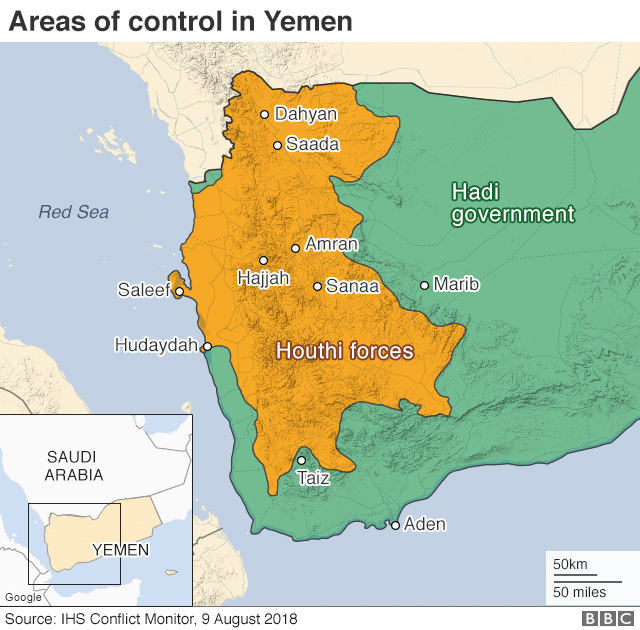
- Published24 August 2018
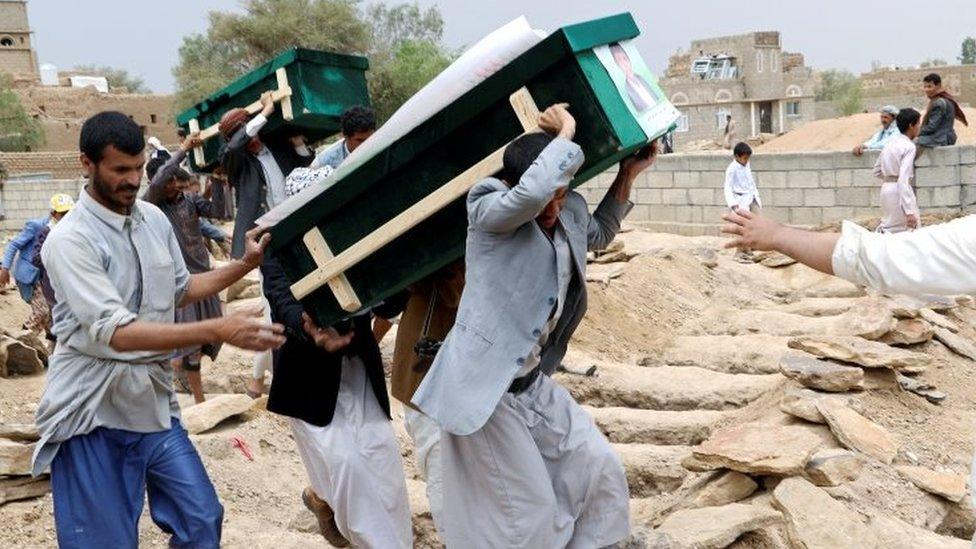
- Published9 August 2018
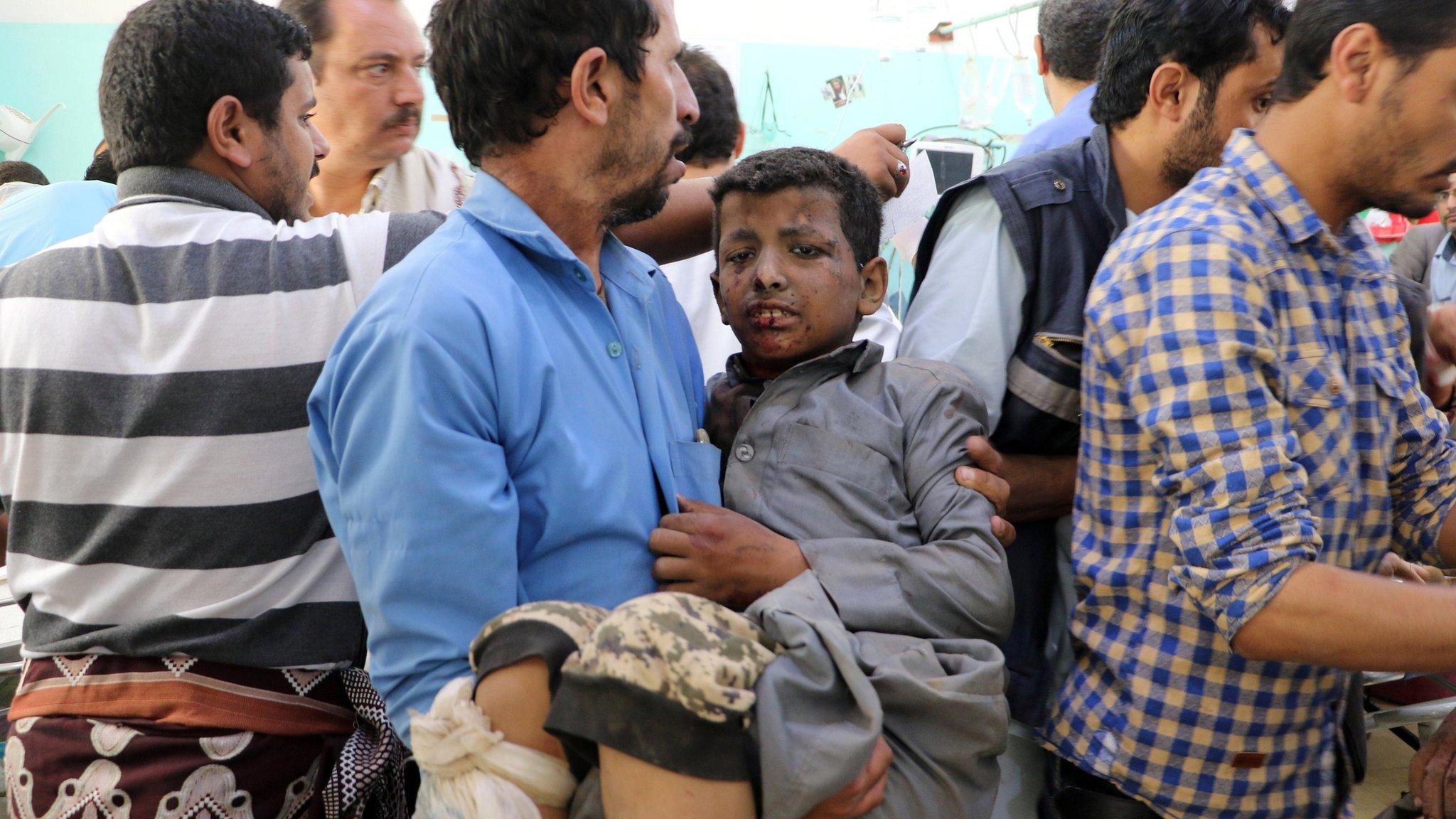
- Published14 June 2018
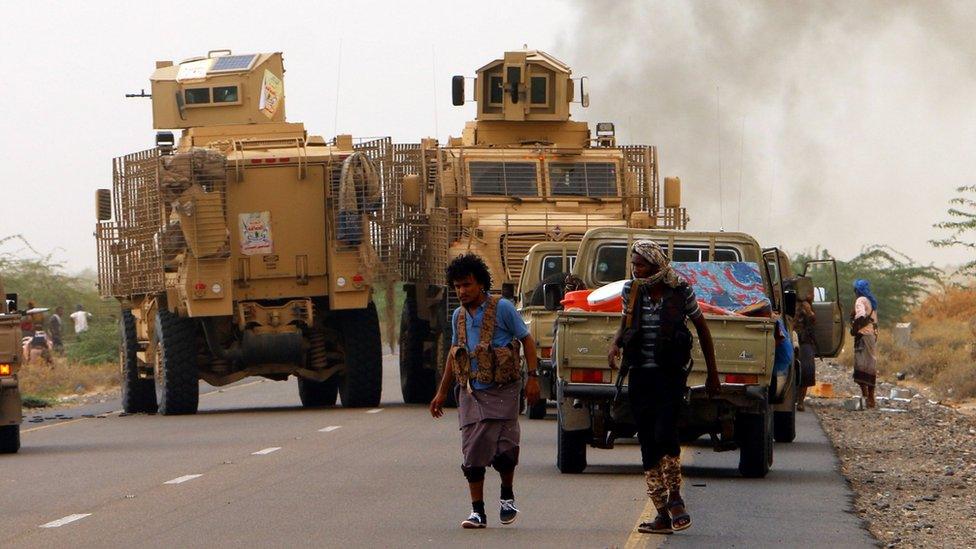
- Published13 June 2018
